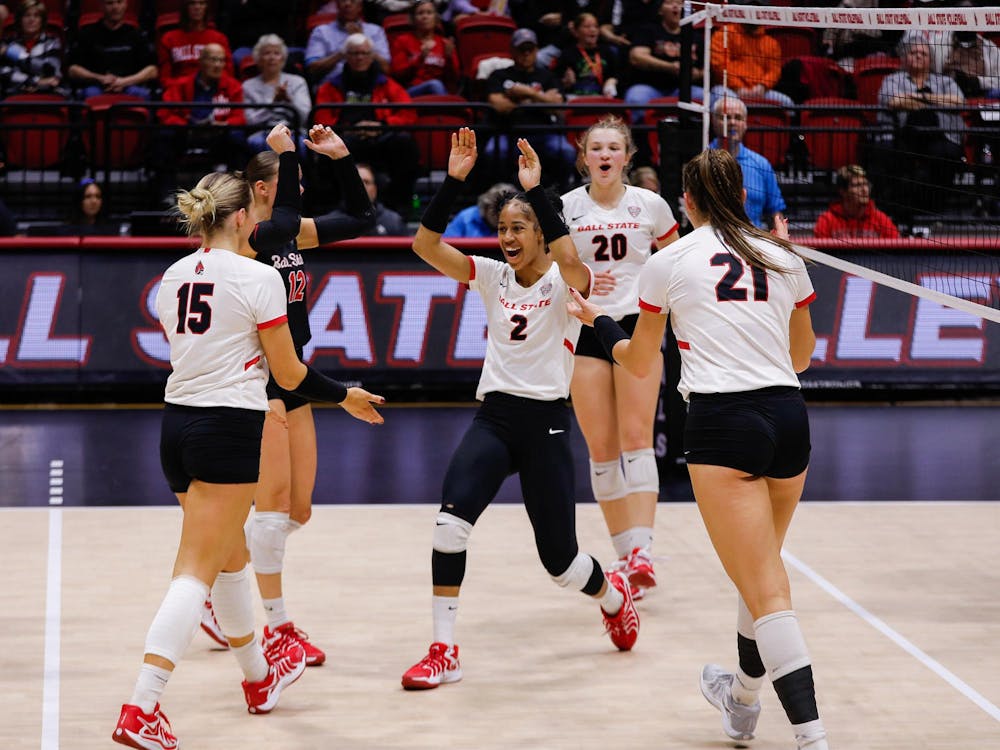Although Ball State has the highest percentage of students taking 15 or more credit hours per semester in Indiana, the four-year graduation rate is still lower than Indiana University and Purdue University’s, according to the College Board.
In Fall 2014, the Indiana Commission for Higher Education sponsored Fifteen to Finish Indiana, encouraging students to take at least 15 credits per semester in order to graduate on time.
According to the Fifteen to Finish website, only three out of 10 Hoosiers complete a bachelor’s degree in four years.
Ball State had 84 percent of students taking at least 15 credit hours per semester in 2012, according to Fifteen to Finish Indiana’s Credit Completion at a Glance State of Indiana data.
Other Indiana schools surveyed include Indiana State University with 71 percent, Indiana University with 51 percent, IUPUI with 22 percent and IU Kokomo with only 14 percent taking 15 credits per semester.
Marilyn Buck, the associate provost and dean of University College, said Ball State learned quickly that, while it takes 12 credits per semester for a student to be considered full-time, it takes at least 15 to get out on time.
However, Ball State's four-year graduation rate from Fall 2008 to July 2012 was 36 percent, according to bsu.edu. Purdue University West Lafayette's four-year graduation rate was almost 10 percentage points higher for the 2008 cohort, while Indiana University Bloomington's rate was over 23 percentage points higher for the 2007 cohort, according to purdue.edu and iu.edu.
Buck said advising is a critical piece to graduating on time.
Academic advisers at Ball State are appointed to students at the beginning of the school year. Freshmen have one adviser, while sophomores and above are assigned a faculty adviser and an adviser within their area department, whose job is to make sure students are fulfilling their requirements.
Buck said the job of an academic adviser is to “help you put together your plan for graduation and make sure you pick the right courses.”
Curtis Clock, an academic adviser for freshmen at Ball State University, said he reaches out to all 230 of his students and sits down to draw out a four-year plan. A four-year plan will show students what courses they need to take each semester in order to graduate on time.
“Because of Fifteen to Finish, there is an added pressure to get students out of here on time,” Clock said.
Ball State junior Stephannie Tapp said she has had a good experience with her adviser and could not imagine school without her four-year plan.
“As a freshman, I was overwhelmed, and, thankfully, my adviser eased my worries with my four-year plan,” Tapp said. “Now as a junior, I can make my own class schedule.”
For students, one main motivator to graduate on time is cost.
“It really does cost you more money if you go over four years, not just because you pay for tuition longer, but because many schools, including Ball State, add a fee for each credit you take after you have been here for four years,” Hayley Andrews, a senior, said.
Marilyn Buck said the fees for each additional credit are added after a student has reached 144 credits. Buck said the school is hoping the added fees will encourage students to graduate on time instead of sticking around.
While Ball State is doing very well overall with the Fifteen to Finish Program and some students are very pleased with their advising experience, others say they have not had the same level of attention from their academic advisers.
“I have never had an adviser make a four-year plan for me,” Andrews said. “I have done it all myself because I figured it was better to get it done than wait and be left in the dark.”
Another Ball State student, Marisa Komosinski, said her adviser promised her help after she changed her major but did not follow through.
“I was technically almost a year behind on the classes I needed, but eventually figured out my own four-year plan,” Komosinski said.
Junior Ankit Patel said, while the business college does well with making four-year plans, he still does what he can to self-plan.
“I think a lot of it is personal initiative in order to be successful,” Patel said.
Buck said it is up to the students, to a point, to make sure they are going to see their adviser every semester and signing up for the courses they need.
“If a student feels like they are not getting the advising help they need, and they’ve made the effort, … those students should go talk to the department chair in their program. … The Dean’s office is the next step if they still feel they are not getting what they need,” Buck said.




